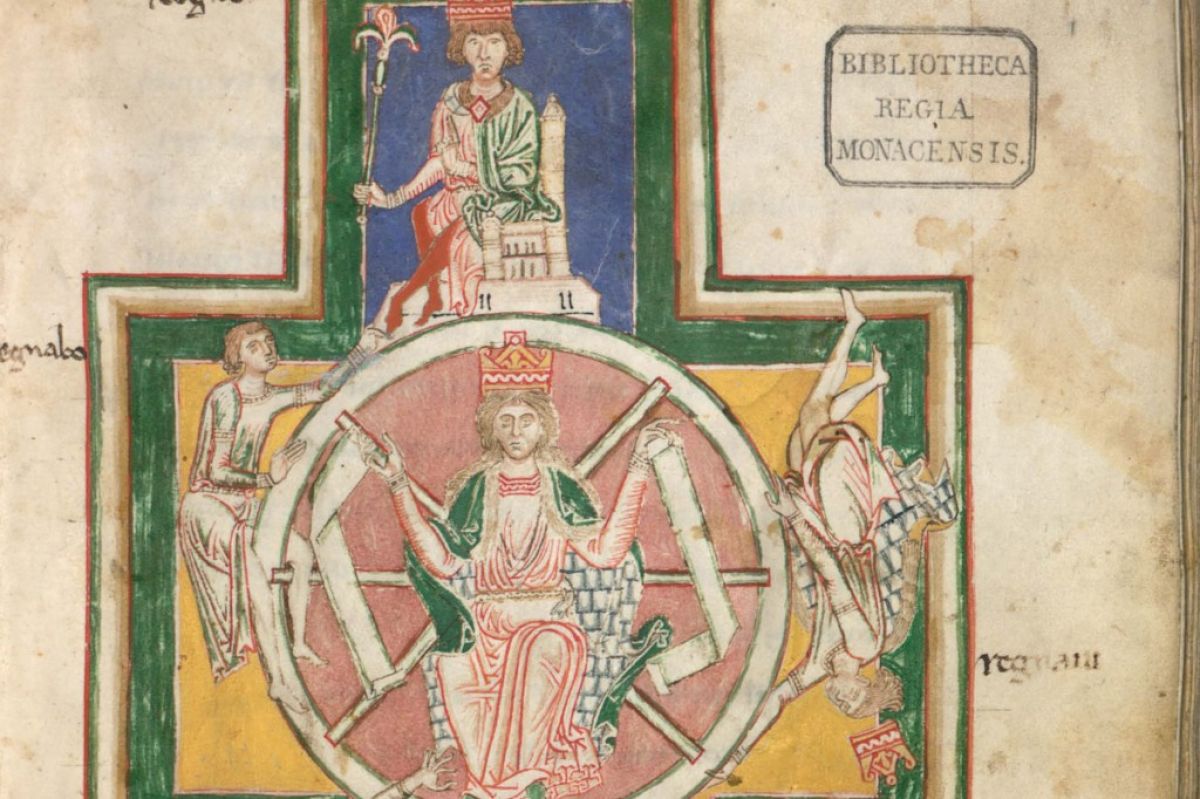Welcome to Harmonia Uncut, a podcast that takes you to performances of early music that you might have missed. I’m Wendy Gillespie, inviting you to join me for a journey back to Bloomington, Indiana on September 8, 1995. A large group of people has assembled in the Musical Arts Center at the School of Music for a memorial to Thomas Binkley, the founder of the Early Music Institute who had departed this mortal coil earlier that year. Live performance, which was much more interesting to Tom than edited recordings, inspired the memorial, as it does this podcast, so we’re going to share some of those heartfelt musical tributes.
Here’s a song from the 13th-century Greater Passion Play from the Carmina Burana manuscript that Tom reconstructed, in collaboration with his colleague Clifford Flanigan, Professor of Comparative Literature at IU. Cheryl Fulton, harp, and the singer Karen Clark made their New York City debuts as students in Binkley’s 1982 production of the play at the Cloisters.
- MUSIC: Awe, awe, mich hiut unde immer we from The greater passion play of Carmina Burana / Anon. ; reconstructed from the original 13th-century source by Thomas Binkley and Clifford Flanigan (1982) (Karen Clark, soprano ; Cheryl Fulton, harp (4:57)
Nearly everyone present was a musician, wanting to show appreciation, respect, and love for their colleagues (and not quite sure how to behave). Karen Clark sang the lament of Mary, the mother of Christ, from the Binkley-Flanigan reconstruction of the C13 Greater Passion Play from Carmina Burana, with Cheryl Fulton, harp.
Continuing in the Marian theme, Professor Paul Elliott and his student Alan Bennett contributed an anonymous Aquitanian duet whose text treats the Biblically inspired image of Daniel’s mountain as a metaphor for Mary’s virginity.
- MUSIC: De monte lapis scinditur / Anon., C13 - Alan Bennett, Paul Elliott, tenors) (2:21)
An anonymous duet from C13 France sung by Paul Elliott and Alan Bennett. Al went on to become Head of Vocal Studies at the National University of Singapore.
Virtuoso lutenist Paul O’Dette had his very first lute lesson with Thomas Binkley. He was moved to play a Dowland lute solo that reminded him of Tom:
- MUSIC: “Farewell fantasia” / John Dowland (Paul O'Dette) (6:25)
Paul O’Dette played John Dowland’s “Farewell fantasia.” Then he switched from lute to theorbo to join the continuo team of Elisabeth Wright on organ and your humble servant on viola da gamba; Stanley Ritchie and David Wilson stepped up with their violins, and Jann Cosart with her viola, to shower the listeners with Johann Schmelzer’s Lament on the death of the Holy Roman Emperor Ferdinand III.
- MUSIC: Lamento sopra la morte Ferdinandi III a tre / Johann Schmelzer (Stanley Ritchie, David Wilson, violins ; Jann Cosart, viola ; Wendy Gillespie, viola da gamba ; Elisabeth Wright, organ, with Paul O'Dette, theorbo) (6:56)
Such a beautiful piece! That was Johann Schmeltzer’s l ament on the death of Ferdinand III. We’ve been listening to music from a memorial event for Thomas Binkley, the founder of the Historical Performance Institute, held in September of 1995 at the Jacobs School of Music in Bloomington, Indiana. The performers were his Tom’s students and colleagues. Many thanks to our friends at the Cook Music Library for their sorcery, turning a “digital audio tape” into something we can share with you.
We’re always interested in hearing your thoughts about this podcast. You can find Harmonia on Facebook, or leave a comment or question any time by visiting harmonia early music dot org. This has been Harmonia Uncut, and I’m Wendy Gillespie, thanks so much for joining me!










